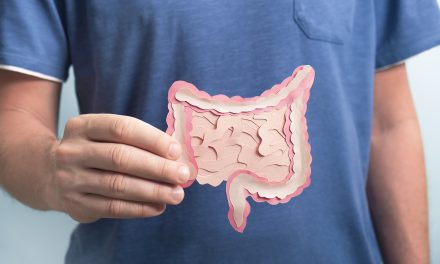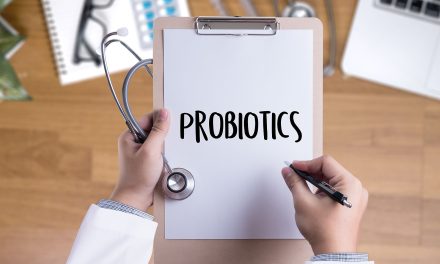Probiotics, often referred to as ‘good bacteria’, have garnered attention for their health benefits in humans and, increasingly, for pets. When it comes to cats and dogs, these beneficial microorganisms play a vital role in maintaining a balanced intestinal flora, which is critical for their overall health. By populating the gastrointestinal tract with healthy bacteria, probiotics aid in digestion, nutrient absorption, and immune function, making them a valuable supplement for pets.

Understanding how probiotics work is essential for appreciating their benefits. These live bacteria promote a healthy balance of microflora in the pet’s gut, which can be disrupted by factors such as antibiotics, dietary changes, or illness. Probiotic supplements for cats and dogs can help to restore this balance, leading to improved gastrointestinal health. Moreover, probiotics can also contribute to alleviating various health issues ranging from diarrhea to certain allergies and skin conditions, making them a versatile addition to pet care regimens.
Key Takeaways
- Probiotics aid in digestion and immune function in cats and dogs.
- A balanced gut flora in pets can be supported by the use of probiotics.
- Probiotic supplements can help alleviate various pet health issues.
Understanding Probiotics and Prebiotics
Probiotics and prebiotics play critical roles in maintaining the health of pets by influencing their microbiome. This section explores how these components work within the gut of cats and dogs, in particular, how they help manage the balance of microorganisms that impact overall health.
The Role of Bacteria in Pet Health
In the digestive system of cats and dogs, a complex community of microorganisms, including both good and bad bacteria, exist in a delicate balance. This microbiome is essential for many bodily functions, such as aiding digestion, producing vitamins, and protecting against pathogens. Probiotics are live microorganisms that, when administered in adequate amounts, provide a health benefit to the host by enhancing this existing microflora.
Probiotics vs. Prebiotics
While probiotics are the beneficial bacteria themselves, prebiotics are non-digestible fiber compounds that feed the good bacteria in the gut. They act as food for probiotics and support their growth and activity, having a symbiotic relationship within the host’s gastrointestinal tract. Prebiotics, therefore, are crucial for maintaining a healthy balance of microflora, ensuring that probiotics can flourish and exert their positive effects on the pet’s health.
Benefits of Probiotics for Cats and Dogs
Probiotics have become an integral part of promoting overall wellness in pets, particularly focusing on digestive health, immune system enhancement, and behavioral benefits associated with stress reduction.
Digestive Health
Probiotics are beneficial bacteria that contribute significantly to the digestive process. In cats and dogs, they can help maintain an optimal balance of gut flora, aiding in digestion and nutrient absorption. Probiotics for dogs have been shown to alleviate symptoms such as diarrhea and constipation, enhancing their gastrointestinal health.
Immune System Support
The immune system works hand in hand with the gut, which houses a large proportion of immune cells. By reinforcing gut health, probiotics for cats can boost the animal’s overall immunity. Regular intake of these supplements can make pets more resilient against infections and diseases.
Behavior and Stress
Stress and anxiety in pets can manifest in various ways, impacting their behavior and physical health. Probiotics are found to have a soothing effect, likely due to their positive influence on the gut-brain axis. They help in fostering a calmer demeanor in pets, especially those prone to stress or anxiety-related behavior.
Incorporating Probiotics in Pet Diets

Probiotics are beneficial microorganisms that can enhance the intestinal health of pets when incorporated into their diets, either through supplements or specially-formulated foods.
Probiotic Supplements
When introducing probiotic supplements into a pet’s diet, it’s essential to select strains beneficial to dogs and cats, such as Enterococcus faecium and Lactobacillus acidophilus. These supplements often come in various forms, including powders, capsules, and chews. Pet owners should adhere to the recommended dosage provided by the manufacturer or a veterinarian to ensure pets obtain the full benefits without any adverse effects.
Here’s a brief overview of dosing probiotics:
- Capsules/Powders: Mix with wet food or sprinkle over dry kibble.
- Chews: Administer as treats according to the package’s weight guidelines.
Pet Food With Probiotics
Opting for pet food with probiotics can conveniently incorporate these beneficial bacteria into a pet’s diet. These foods should guarantee the presence of live probiotic cultures, like Enterococcus faecium and Lactobacillus acidophilus, up to the product’s expiration date. These foods are often fortified with essential nutrients and vitamins to support overall health. Pet owners should transition their pets gradually to avoid digestive upset and choose formulations appropriate for their pet’s specific life stage and size. Remember to store these products as per instructions to preserve the probiotic efficacy.
A simple guideline for transitioning to probiotic-enriched pet food:
- Day 1-3: Mix 25% new food with 75% current food.
- Day 4-6: Increase to a 50/50 mixture.
- Day 7-9: Mix 75% new food with 25% current food.
- Day 10: Switch completely to new food.
Pet owners can support their pets’ digestive and overall wellbeing by carefully choosing and administering probiotics, either through supplements or fortified food.
How Probiotics Work

Probiotics support gut health by introducing beneficial microorganisms, often good bacteria, to the digestive tract. They play a critical role in balancing gut flora and enhancing the overall function of the gut microbiome.
Balancing Gut Flora
The primary function of probiotics lies in their ability to maintain and restore the natural balance of gut flora. A healthy gut microbiome is composed of diverse bacteria, and probiotics contribute to this biodiversity by adding beneficial strains. These good bacteria can inhibit the growth of harmful bacteria by competing for nutrients and attachment sites within the digestive tract.
Interaction With the Digestive Tract
Probiotics interact with the digestive tract in multiple ways. They can:
- Enhance barrier function: Strengthening the intestinal lining to prevent the leakage of harmful substances into the body.
- Modulate immune responses: Communicating with immune cells to maintain a state of alert against pathogens.
- Aid digestion: Assisting in the breakdown of food and absorption of nutrients, essential for the overall health and well-being of cats and dogs.
By performing these functions, probiotics support pets’ overall gut health, aiding digestion and contributing to a more robust immune system.
Common Probiotic Strains for Pets

Probiotics for cats and dogs primarily involve strains that foster a healthy digestive tract and support the immune system. These beneficial bacteria and yeasts are critical for maintaining gut flora balance.
Lactobacillus and Bifidobacterium
Lactobacillus acidophilus is one of the most commonly used probiotic strains for pets, promoting intestinal health and possibly aiding in preventing diarrheal illness. It is a part of the larger Lactobacillus group, which consists of species like Lactobacillus fermentum and Lactobacillus rhamnosus. These strains are often found in fermented foods and are noted for their role in maintaining a pet’s digestive health.
Bifidobacterium includes strains such as Bifidobacterium animalis and Bifidobacterium breve, which help to promote a balance of friendly bacteria in the gut. The presence of these bacteria is associated with various health benefits, including improved digestion and better immune responses.
Yeasts and Other Beneficial Strains
Within the category of yeasts, Saccharomyces boulardii is a notable probiotic often used to treat and prevent diarrhea in pets. Although not a bacterium, this beneficial yeast complements the work of bacterial strains by providing additional gut health support.
Other beneficial strains that serve as probiotics for pets include Enterococcus faecium and Lactobacillus casei. These aid in maintaining a healthy balance of gut microflora, contributing to overall wellbeing and disease resistance in cats and dogs.
Addressing Pet Health Issues

Probiotics are beneficial for managing various health issues in pets, primarily focusing on gastrointestinal disorders and allergies. They help restore the natural balance of the gut flora, which can be crucial in maintaining the overall health of dogs and cats.
Gastrointestinal Disorders
Diarrhea and Constipation: Probiotics help regulate bowel movements in pets. In cases of diarrhea, they can contribute to firming up stools by enhancing gut health. Conversely, for pets suffering from constipation, probiotics may aid in softening stools and promoting regular bowel movements.
Inflammatory Bowel Disease and Digestive Upset: Pets with Inflammatory Bowel Disease (IBD) can benefit from probiotics, which help soothe the intestinal lining and reduce inflammation. They also assist in mitigating digestive upset, including vomiting, by improving the balance of good and bad bacteria in the gut.
Allergies and Inflammatory Conditions
Probiotics may have a role in modulating the immune system, which can influence allergies and inflammatory responses. By strengthening the gut barrier, probiotics can help reduce the severity of allergic reactions and lower systemic inflammation, potentially relieving conditions such as skin allergies and IBD.
Safety and Efficacy

When considering probiotics for dogs and cats, safety and efficacy are paramount. Consumers and veterinarians seek products that are both effective in providing health benefits and safe for pets to consume. The quality of research backing these products and the regulations ensuring their quality play critical roles in determining their suitability for pet health.
Research and Clinical Studies
Research indicates that specific probiotic strains can benefit the gastrointestinal health of cats and dogs. Clinical studies often focus on probiotic strains like Enterococcus faecium and Lactobacillus acidophilus, examining their potential to improve intestinal microbiota and aid in various digestive disorders. While numerous studies suggest a positive impact, potential side effects like diarrhea or flatulence are noted, underscoring the need for species-specific research and tailored dosing.
A study on PubMed explores the benefits, applications, and mechanisms of gut probiotics in dogs and cats. Probiotic use is associated with advantages such as bolstered immune function and improved digestion, but the study also stresses the necessity for further controlled trials to establish safety and efficacy conclusively.
Regulation and Quality Assurance
Regulation of probiotics for animal use is less stringent than for human medications, leading to variations in product quality. Probiotics must be manufactured and labeled according to established guidelines to ensure they contain the correct strains and dosages. Quality assurance involves verification of live bacterial content, product purity, and stability through the shelf-life.
Reviews of products on the market may provide insights into their effectiveness. Still, regulatory bodies like the FDA also oversee the labeling of supplements, ensuring that claims are accurate and not misleading. Key information on a label includes specific strain identifications, colony-forming units (CFUs), and correct storage information. Reliable probiotics for pets will often have undergone rigorous testing and may bear a seal from a respected veterinary organization, lending credibility to their safety and efficacy.
Probiotic Administration and Dosage

Probiotics are available in various forms, and the prescribed dosage is crucial for their effectiveness. Following veterinary guidance is important to ensure pets receive optimal benefits.
Delivery Methods
Paste: This form can be directly administered into the pet’s mouth, which allows for controlled dosing.
Capsule and Tablet: These oral forms can be concealed in food or a treat to encourage consumption.
Powders: This variant can be easily mixed with the pet’s food. They must be stored properly to maintain their efficacy.
Determining the Right Dosage
The right dosage of probiotics depends on several factors, including the animal’s size, health status, and the specific probiotic blend. Generally, manufacturers provide a recommended dosage on the product’s packaging. However, it is essential that pet owners consult with a veterinarian prior to administration. Vets usually prescribe probiotics based on the strength, measured in colony-forming units (CFUs), and may vary the dosage for a targeted therapeutic effect.
Understanding Pet Owners’ Concerns

Pet owners often face confusion when discerning the proper use of probiotics. Concerns typically stem from the differences between supplements designed for humans versus those created for dogs and cats and the array of misconceptions surrounding their use.
The Debate Over Human vs. Pet Probiotics
Pet parents regularly question whether human probiotics can safely and effectively be given to their pets. Human probiotics are tailored to the gut microbiome and may not provide the same benefits or tolorance for animals. Veterinary-specific formulas are designed for pets, considering their unique digestive systems and dietary needs. This knowledge is crucial for maintaining pet health and understanding why veterinary-formulated supplements are typically recommended over human products.
Addressing Common Misconceptions
Misconceptions abound when it comes to pet probiotics. A widespread fallacy is that the amount of live cultures listed at the time of manufacture indicates the number of live cultures throughout the shelf life. In reality, the potency can decrease before reaching the pet. Furthermore, pet owners often expect immediate results; however, probiotics may require time to balance the pet’s gut flora, and effects can vary based on the animal’s condition and the quality of the probiotic product used.
Choosing the Right Probiotic
Selecting an appropriate probiotic for cats and dogs involves understanding the pet’s specific needs and recognizing the product’s quality. It’s a decision that can significantly impact an animal’s digestive health.
Factors to Consider
When choosing a probiotic for cats or dogs, it’s essential to identify strains of bacteria specific to these animals. Probiotics for humans may not provide the same benefits for pets; hence, pet-specific formulas are recommended. Products should contain live and viable organisms to ensure effectiveness. Consumers should look for the CFU (colony-forming units) count, which indicates the number of live microbes in each dose. The product’s stability is another critical factor — it should maintain efficacy until the expiration date.
- Species-specific strains: Lactobacillus, Bifidobacterium, Enterococcus, and Streptococcus are commonly used in pet probiotics.
- Guaranteed viability: Choose products that clearly state viability through the end of shelf life.
- CFU count: Higher numbers may not always be better; seek a product with an adequate count that is effective for your pet’s size and condition.
- Expiration dates: Ensure that the product you purchase has a distant expiration date to maintain potency.
Consulting With a Veterinarian
Consulting with a veterinarian is crucial when adding a probiotic to a pet’s regimen. They can guide which probiotic strains are most beneficial and how they might interact with the pet’s current diet or medication. Veterinarians know about various probiotic forms — from powders and capsules to chews — and can recommend the most suitable form based on the pet’s specific needs and preferences. They can also monitor the pet’s health and adjust the probiotic treatment to achieve the best results.
- Professional advice: A veterinarian can help determine your pet’s appropriate strains and CFU count.
- Personalized care: The vet considers the pet’s health status, lifestyle, and dietary needs.
- Ongoing management: Your vet can adjust dosages and formulations as your pet’s health changes or as new research emerges.
When selecting a probiotic supplement, pet owners should be informed about the specific strains, viability, and formulation most suitable for their cat or dog. Consulting a veterinarian ensures a tailored approach, maximizes the benefits of the probiotic, and helps maintain the overall health and wellness of the pet.
Future of Probiotics in Pet Care
The advancement of probiotics in pet care continues to be shaped by robust research and evolving nutraceutical products, promising enhanced health benefits for cats and dogs.
Emerging Research
In the realm of research, the emphasis is on unlocking the complex interactions between probiotics and the gut microbiome of pets. With dogs and cats being increasingly regarded as family members, studies that explore the therapeutic potential of probiotics are on the rise. Scientists are particularly interested in synbiotics—a combination of probiotics and prebiotics, such as fructooligosaccharides and oligosaccharides, which work synergistically to improve gut health. Research is not only focusing on the benefits but also on understanding the mechanisms through which these benefits are rendered.
Trends in Probiotic Products
The pet probiotic market is observing significant growth, fueled by trends prioritizing pet health and well-being. A shift towards science-based probiotic products tailored specifically for pets suggests that probiotic supplements will become even more specialized. Innovations in this space include nutraceuticals incorporating synbiotics that promote a balanced gut flora, which can lead to better overall health for pets. Manufacturers recognize the importance of quality assurance and will likely promote products that clearly enumerate their strains and potency.
Frequently Asked Questions
In this section, one will find important information regarding probiotics for cats and dogs, addressing pet owners’ common inquiries about their use and effects.
What are the benefits of giving probiotics to cats and dogs?
Probiotics are beneficial for maintaining a healthy digestive system in pets. They may assist in the treatment of acute uncomplicated diarrhea and as an adjunct therapy for chronic enteropathies.
How can I determine if my cat or dog needs probiotics?
One might consider probiotics for their pet in cases of digestive upset, such as diarrhea or constipation. Consulting a vet is the best step to determine if probiotics are needed, as they can accurately evaluate the pet’s health condition.
Are there any differences between probiotics for cats and dogs?
While some probiotics are specially formulated for either cats or dogs, others are designed to be universal. However, since the intestinal flora of cats and dogs can differ, it’s essential to use products tailored to each species for the best results.
Is it safe to administer human probiotics to pets?
It’s typically recommended to avoid giving human probiotics to pets. Pets have different intestinal gut flora, so using formulations specifically designed for cats and dogs is generally safer.
What are the potential side effects of probiotics in cats and dogs?
Side effects are usually rare and mild. Some pets may experience gastrointestinal symptoms like gas or bloating when taking probiotics. If such symptoms persist, it’s crucial to seek veterinary guidance.
How long does it generally take to see the effects of probiotics in pets?
Although the timeline can vary for each pet, some may begin to show improvements in digestive health within a few days of starting probiotics. For others, it might take a few weeks. Patience and consistent administration are vital factors for seeing the benefits.















